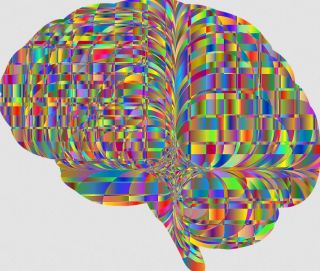Artificial Intelligence
AI Uses Brain Chemistry for Precision Neuroscience
A new AI platform could speed diagnosis with noninvasive virtual brain biopsies.
Updated December 22, 2023 Reviewed by Ray Parker
Key points
- BrainSpec's AI software uses MRS data to analyze brain chemistry.
- This could mean virtual biopsies without surgery.
- BrainSpec analyzes key neurometabolites like glutamate and GABA.
- Measuring metabolites provides information for diagnosing brain disorders like schizophrenia and epilepsy.

Virtual brain biopsies by clinicians may become possible with the application of artificial intelligence (AI) machine learning combined with noninvasive brain scans. BrainSpec's AI software has achieved a new milestone in digital healthcare, which uses data from noninvasive magnetic resonance spectroscopy (MRS) scans to provide measurements of brain chemicals.
Magnetic resonance spectroscopy (MRS) is a noninvasive tool that may provide valuable information for diagnosing and observing brain diseases and disorders by measuring chemical compounds and the intermediate products of cellular metabolism called metabolites. MRS uses the same equipment as magnetic resonance imaging (MRI).
The difference is that MRS measures the concentration of chemicals, whereas an MRI measures blood flow.
Metabolomics is the large-scale scientific study of metabolites (low molecular weight biomolecules) found within cells, tissues, and biological systems. Metabolomics is useful in drug discovery, healthcare, and pharmacology because it may provide insights into drug response, diagnostic biomarkers, and disease mechanisms and help characterize genetic risk factors for diseases.
The number of identified human metabolites has increased significantly. For example, the largest metabolomic database, the Human Metabolome Database (HMDB), contained data on over 2,100 metabolites in 2007. Today, the most current version, HMDB Version 5.0, contains information on over 220,900 metabolites.
In the brain, MRS can measure neurometabolites, such as choline, N-acetyl aspartate (NAA), glutamine, glutamate, creatine, Myo-inositol, lactate, and 2-Hydroxyglutarate (2-HG). Understanding and identifying neurometabolites may help accelerate research to help improve diagnostics and treatment of schizophrenia, dementia, epilepsy, gliomas, Alzheimer's disease (AD), Parkinson's disease, multiple sclerosis (MS), hypoxic-ischemic encephalopathy (HIE), and traumatic brain injury (TBI).
For example, a 2019 study by researchers affiliated with the Department of Psychiatry and Behavioral Sciences at The Johns Hopkins University School of Medicine used MRS at 7 Tesla to discover that mild cognitive impairment was associated with decreased levels of glutamate and GABA, and most consistently in the posterior cingulate cortex brain region. People with mild cognitive impairment have an increased risk of dementia and Alzheimer's disease, according to the US National Institutes on Aging at the National Institutes of Health (NIH).
BrainSpec says it's to be the first AI software platform that uses brain chemistry data to be awarded clearance from the US Food and Drug Administration (FDA). The Boston-based startup was founded by Alexandra Zimmerman in 2015 with backing from Techstars, DCVC, Tuesday Capital (formerly CrunchFund), and other investors. Zimmerman co-founded BrainSpec with Alexander P. Lin, Ph.D., the Center for Clinical Spectroscopy director in the Department of Radiology at Brigham and Women's Hospital and associate professor of radiology at Harvard Medical School.
Said BrainSpec co-founder Lin to Psychology Today:
"Much of the AI applications in brain imaging have focused on structural changes in neurological disorders however the virtual biopsy offered by BrainSpec measures the chemistry of the brain which offers much greater insight into the underlying pathophysiological changes that occur with neurological disorders. This is not to say it is competitive technology to existing AI and digital healthcare but is in fact highly complementary, providing a more in depth understanding of neurological disorders.”
Copyright © 2023 Cami Rosso. All rights reserved.


